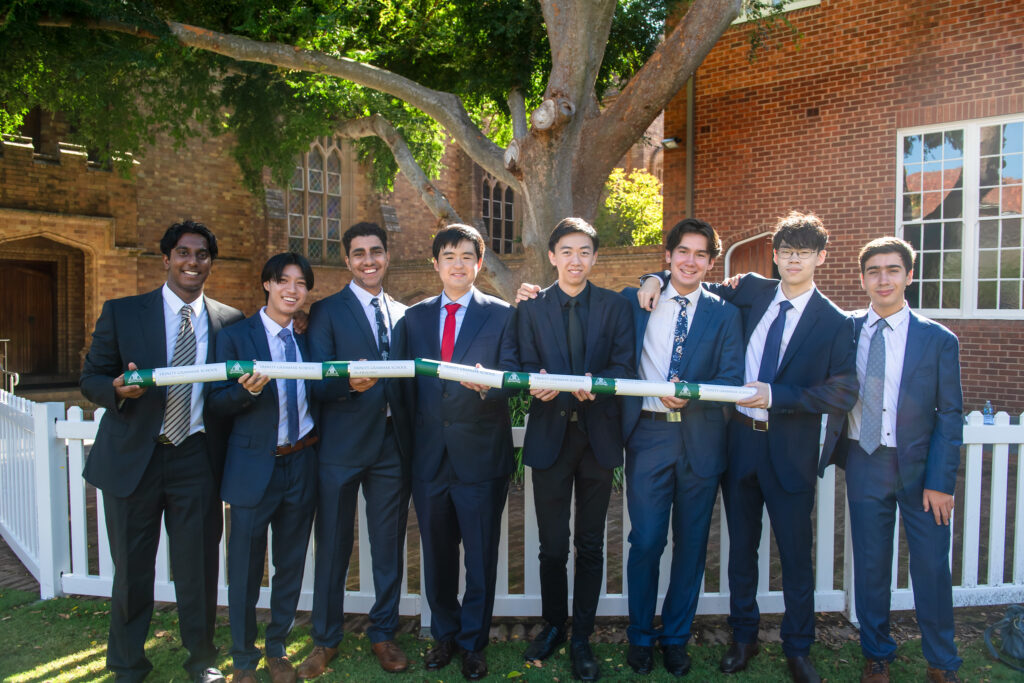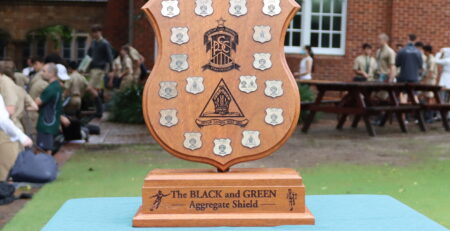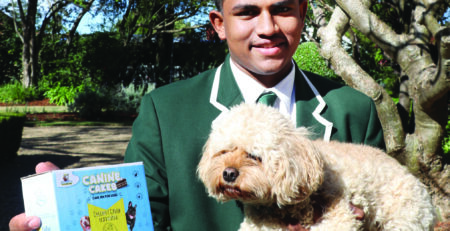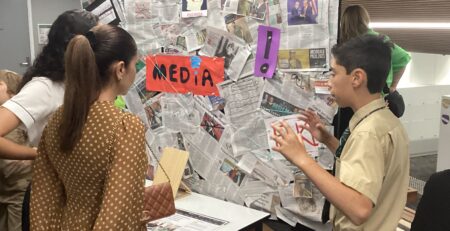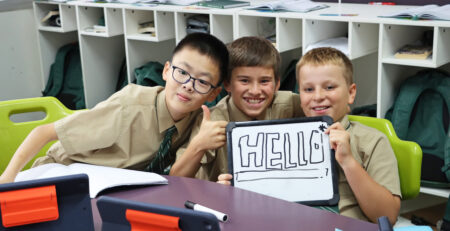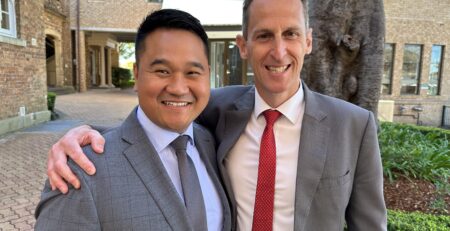Learning is not a competitive sport
There is a better way, says Deputy Headmaster – Academic
Is the race to a high ATAR all that matters? Are other students competitors rather than teammates? Are they opponents who might potentially grab your university spot, scholarship, or job?
If your answer to these questions is yes, then one of Trinity’s academic leaders has some advice for you – relax, re-think, and review your education in a completely new light.
Deputy Headmaster – Academic, Debbie Williams, delivered an unequivocal message to students at a quad assembly: “Learning is not a competitive sport.”
And judging from the applause that greeted her remarks, they clearly struck a deep chord.
Mrs Williams insists the joys of collaborative learning make it the way to go, despite the inescapable reality of the ATAR university ranking system.
She says there is a double benefit from collegiate learning; not only does it deepen personal academic growth but it helps develop so-called “soft skills” such as teamwork, which are highly valued by modern employers and crucial to solving many complex problems.
“Learning with and from your peers, enjoying their successes and truly recognising your own, is ultimately the mark of a mature and high potential learner,” she told students.
“Focussing on performance and results in comparison to others is a stressful way to negotiate six years of learning (in secondary school).
“There is a better way, far more enriching and satisfying when we let go of competition and embrace learning with others instead, when you see your fellow learners as your teammates rather than your opponents.”
Trinity went to great lengths, she said, to encourage and recognise individual effort, as expressed in each boy’s Engagement Point Average (EPA), as well as achievement, measured in the Grade Point Average (GPA).
“We do quite a bit to support you to resist the myth that learning is competitive, and that the best way to judge your own success is by beating others,” she told students.
“We don’t rank you on your reports; we emphasise your engagement scores and EPA as the most crucial feedback on your report because it is completely in your control.
“Each semester on quad we call out the names and award every boy who has achieved strong consistent academic performance, or engagement, or has achieved significant growth in those areas; we write individual next steps for learning, personalised to you, so you can keep improving.
“We don’t have a quota on how many boys can get that Academic Excellence Award each semester – we don’t say it’s the best 20 or the top 10 per cent or any other competitive measure whereby you must beat others.
“It’s the same with assessment tasks: we have an unlimited supply of As and an unlimited supply of Academic Excellence Awards.
“It would be my best day ever if the Academic Awards quad assembly took the whole of period one because there were so many awards, for either achievement or growth, that it took an hour to read every name.
“The pile of certificates is getting a little bigger each term because more and more of you are buying into the truth that your learning success is in your own control and need not be compared to anyone else’s.
“I also know that the Headmaster signs personally, by hand, every certificate because he genuinely likes to see the name of each recipient.”
She cautioned it was a mistake to turn GPA numbers into a competition.
“Sometimes I think some of you might fall into the error of thinking less of your fine achievements if they are 0.1 or 0.2 less than someone else’s.
“I’m sorry if you do that, not only because the GPA is a very blunt and awkward measuring stick, but because learning is not a competitive sport.
“If you see yourselves in perpetual competition with your classmates, your fellow learners, then you impoverish your experience – you make it poorer than what it could have been. For best results in learning, I think we need to say it’s necessary to reject competition.”
Read more about Teaching and Learning at Trinity.



